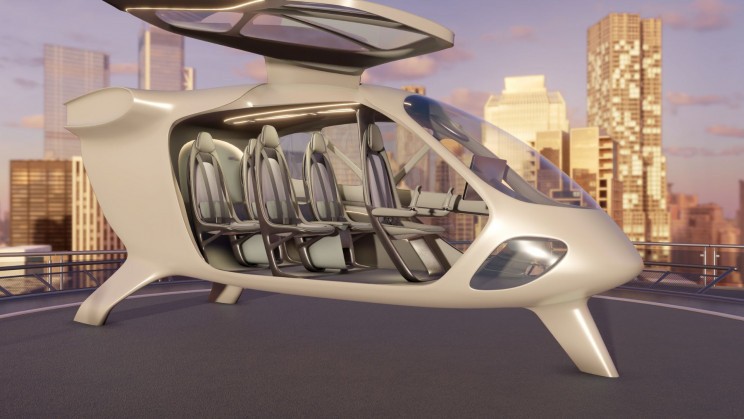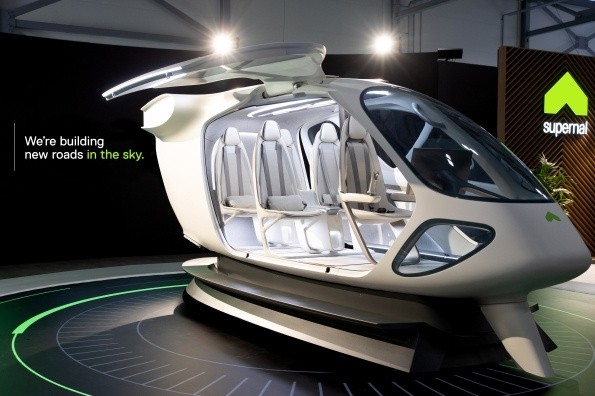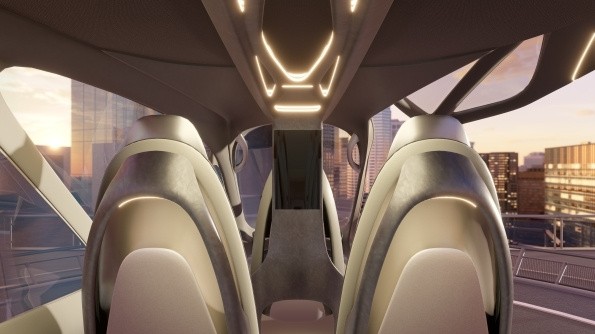Hyundai's very own flying electric car will soon take its flight for commercial use!
Last November 2021, the Hyundai Motor Group created the new division Supernal to make affordable, zero-emission air travel a possibility by as early as 2028, including in the United States.

For future flying taxi services, Supernal is creating a series of electric VTOL (vertical take-off and landing) aircraft. On Monday, the company gave a glimpse inside one of these aircraft's cabins.
The automaker took advantage of the current Farnborough International Airshow in the UK to provide an interior cabin concept for one of their flying cars.
Butterfly-Inspired Cabin
The interior, which has been built to be both light and durable, seats five people, including the pilot, and takes design cues from nature, notably from a butterfly.
The design approach is known as "biomimicry," and it is gaining popularity as a result of fresh computer modeling methods, according to Motor Authority.

The airframe's structure was made up of forged carbon fiber, which is forged from recycled carbon-fiber-reinforced plastic. The wood paneling utilized in the cabin's concept and the plant-based leather used on the seats is just two examples of interior trim that is also derived from sustainable sources.
Additionally, leftover materials from the airframe's production will be used to create the seat frames.
Supernal is looking into using hydrogen fuel cells for longer flights. The company is also looking at a larger aircraft flying people or goods between cities.

A 24-minute flight, as an example provided by Motor Authority, could take you from downtown Los Angeles to Anaheim instead of the roughly 70 minutes it would take you by car during rush hour.
Hyundai Partners With Rolls-Royce
Meanwhile, the Korea-based Regional Air Mobility division is currently working on a mid-sized hydrogen-powered vehicle. The aircraft, which would fly between cities carrying passengers and goods, is anticipated to begin flying in the 2030s, according to Interesting Engineering.
A partnership between Supernal and Rolls-Royce, which develops and produces aircraft propulsion systems, including the jet engines found on several passenger aircraft from manufacturers like Airbus and Boeing, was also announced during the Farnborough air show.
With the help of the partnership, Supernal will advance its development of fuel-cell propulsion systems for aircraft by utilizing the aviation and certification expertise of Rolls-Royce.
These two automakers have the same goal of setting the standard for the AAM market by providing battery- and fuel-cell-powered solutions for the Urban Air Mobility (UAM) and Regional Air Mobility (RAM) industries while promoting eco-friendly flying.
Rolls-Royce Holding, one of the leaders in the aviation industry, provides services to over 400 airlines, over 150 different leasees, and 160 armed forces and fleets.
With the support of BEV and hydrogen fuel cell technology from Hyundai Motor Group, Rolls-Royce is now working to preserve the sustainability factor by developing and certifying zero-emission cars for local and interstate air travel.
This article is owned by Tech Times
Written by Joaquin Victor Tacla




